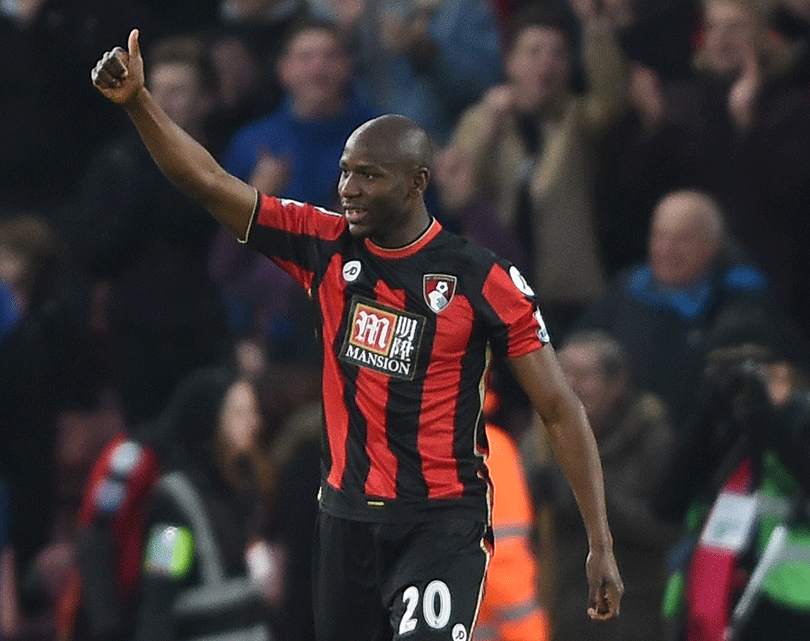
Before the start of every season strikers set themselves a goal-target. The sound of the ball kissing the back of the net drives their thirst for more.
A striker’s desire to fulfill their objective is what makes them fight that extra inch for the ball – that extra inch can be the difference between connecting with cross and guiding the ball into the back of the net and watching the ball evading a crucial touch.
“Motivation depends in a very large part on goal setting. The coach must have goals. The team must have goals. Each individual must have goals—real, vivid, living goals. Goals keep everyone on target,” wrote sports psychologist Gary Mack, in his book Mind Gym.
Bournemouth's Benik Afobe is a striker with the big time in his crosshairs. After becoming the Cherries' record signing, the young forward is determined to make the transition from promising talent to established star: And he wants to do it in the Premier League.
FourFourTwo Performance spoke to Afobe about the role goal setting plays in his quest for glory and sports psychologist, Andy Brownrigg, gives you his top tips for reaching yours.
Define your goals
Andy: Specific goals are more effective when trying to improve performance. When setting goals, express what you want to do, why you want to do it and how you plan to achieve it.
Benik: Setting specific goals is an essential part of a young player’s development. When I first started out as a youngster at Arsenal, we would have lessons with a teacher to help us understand the importance of goal setting and how to go about achieving them. The more specific they are the easier it is to measure your improvement.
Step-by-step
Andy: Improvement does not just happen overnight. Try developing some short-term goals and use these as a stepping-stone towards achieving your long-term goal. Your short-term goal must be realistic to your current performance and should represent a slight performance improvement.
Benik: Short-term goals are crucial. My overall goal is to one day break into the Arsenal first team and represent England at a major tournament. I know that if I improve on my short-term goals it will give me the best possible chance of achieving my overall goal. Currently I am trying to improve my balance and technique because I know this will make me an all round better player.
Keep it real
Andy: If you set your goals too high, you will become frustrated. Most sportspeople are motivated towards accomplishment; therefore look to strike a balance between goals that are challenging, yet achievable.
Benik I never set goals that are too easy; likewise I don’t set goals that are too difficult. I try to make my goals as realistic as possible. Your goals have to be achievable through hard work.
The best features, fun and footballing quizzes, straight to your inbox every week.
Measure your progression
Andy: Setting measurable goals will assist you towards your long-term outcomes. Measuring progression helps provide you with ‘real’ evidence of short-term improvement. This will improve confidence and keep you motivated towards long-term success.
Benik: Setting measurable goals is very important when looking to progress. If you can’t measure your goals, you will have no way of knowing whether or not you have achieved them. Something as simple as improving the power in your shot is a good short-term goal and can be measured easily.
 Join The Club
Join The Club





